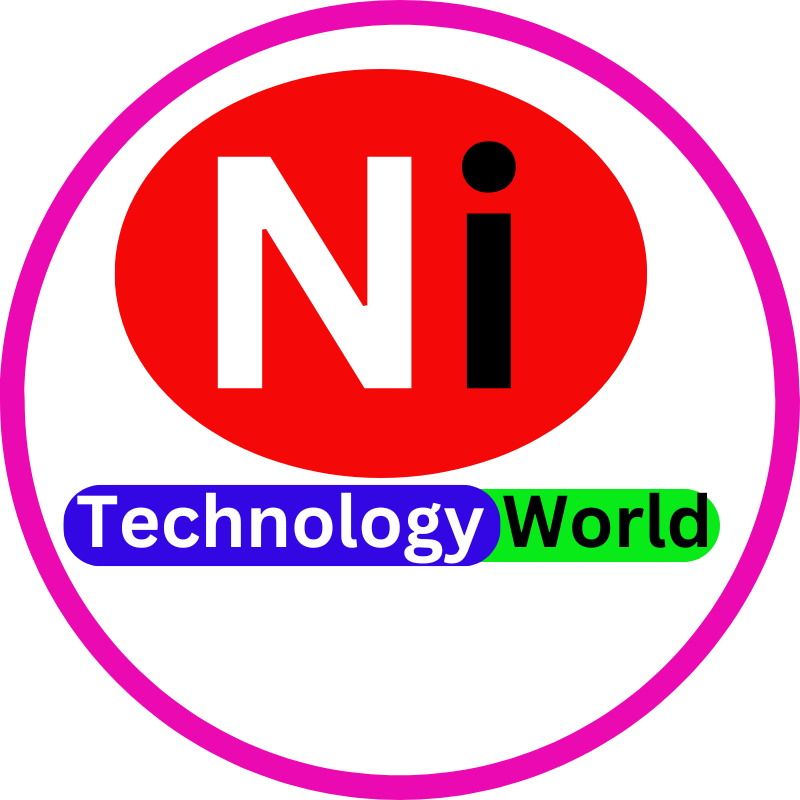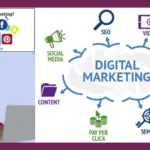In the competitive world of real estate, staying ahead of the curve requires innovative marketing strategies that connect you with potential buyers and sellers. With over 2.9 billion monthly active users, Facebook remains one of the most powerful platforms for real estate marketing. Whether you’re an experienced agent or just starting, leveraging Facebook effectively can help you reach a larger audience, generate leads, and close more deals. In this article, we’ll explore creative Facebook marketing ideas for real estate professionals looking to grow their business in 2024.
- Create a Professional Facebook Business Page:
Your Facebook Business Page is the foundation of your real estate marketing efforts on the platform. It’s your online business card, showcasing who you are, what you offer, and how you can help potential clients.
Key Elements of a Professional Real Estate Facebook Page:
High-Quality Profile and Cover Photos: Use a professional headshot for your profile picture and a visually appealing image of a property or a branded cover photo that reflects your business.
Comprehensive about Section: Provide detailed information about your services, areas of expertise, and contact details. Include your office hours, website link, and any relevant credentials.
Call-to-Action (CTA) Button: Use the CTA button feature to encourage visitors to take specific actions, such as “Contact Us,” “Book Now,” or “Send Message.”
Consistent Branding: Maintain consistent branding across your page, including color schemes, logos, and messaging, to build trust and recognition.
Example:
A real estate agent in Miami creates a Facebook Business Page featuring high-quality images of luxury condos, a CTA button for scheduling viewings, and detailed information about the local real estate market.
- Share High-Quality Property Listings:
One of the most effective ways to attract potential buyers on Facebook is by regularly sharing high-quality property listings. These posts should be visually appealing, informative, and easy to share.
Tips for Sharing Property Listings on Facebook:
Use High-Resolution Photos: High-quality images are essential for grabbing attention. Include photos of key features like the kitchen, living room, and backyard, as well as any unique selling points.
Write Compelling Descriptions: Highlight the property’s best features, including location, size, and amenities. Use descriptive language that paints a picture of what it’s like to live in the home.
Include Key Details: Always provide essential information, such as price, square footage, number of bedrooms and bathrooms, and any special features.
Use 360-Degree and Virtual Tour Videos: Enhance your listings with 360-degree photos or virtual tours that allow potential buyers to explore the property remotely.
Example:
A real estate agent posts a new listing for a spacious family home, including a 360-degree video tour, high-quality images of each room, and a detailed description that highlights the home’s proximity to top-rated schools.
- Leverage Facebook Ads for Targeted Campaigns:
Facebook Ads are a powerful tool for reaching a specific audience based on demographics, interests, and behaviors. By running targeted ads, you can promote your listings, generate leads, and build brand awareness.
Effective Facebook Ad Strategies for Real Estate:
Targeted Audience Segmentation: Use Facebook’s advanced targeting options to reach potential buyers or sellers in specific geographic areas, age groups, income levels, and interests.
Carousel Ads for Multiple Listings: Showcase multiple properties in a single ad using the carousel format, allowing users to swipe through different listings.
Lead Generation Ads: Create ads with a built-in lead form that captures user information directly on Facebook, making it easy for potential clients to contact you.
Retargeting Campaigns: Use retargeting to re-engage users who have previously visited your website or interacted with your Facebook Page but haven’t yet taken action.
Example:
A real estate agency runs a Facebook ad campaign targeting young professionals in New York City, showcasing a carousel of modern apartments with easy access to public transportation.
- Host Facebook Live Virtual Tours and Q&A Sessions:
Facebook Live is an excellent way to engage with your audience in real-time and showcase your properties. Virtual tours and live Q&A sessions allow potential buyers to explore properties and ask questions without leaving their homes.
How to Maximize Facebook Live for Real Estate:
Schedule and Promote Your Live Events: Announce your Facebook Live sessions in advance and promote them through your page, email newsletters, and other social media channels to maximize attendance.
Prepare a Script: Plan out your tour and Q&A session with a script that covers key points about the property and answers common questions.
Engage with Viewers: Encourage viewers to ask questions during the live session and respond to them in real-time. This interaction builds trust and provides valuable information to potential buyers.
Save and Share the Recording: After the live session, save the recording and share it on your Facebook Page and other platforms to reach a broader audience.
Example:
A real estate agent hosts a Facebook Live virtual tour of a newly listed beachfront property, walking viewers through each room and answering live questions about the home and local area.
- Share Client Testimonials and Success Stories:
Social proof is a powerful motivator for potential buyers and sellers. Sharing client testimonials and success stories on your Facebook Page can build credibility and demonstrate your expertise.
Ways to Share Testimonials on Facebook:
Video Testimonials: Record short video testimonials from satisfied clients who have bought or sold homes with your help. Video content is more engaging and trustworthy than text alone.
Before-and-After Stories: Share stories of homes you’ve helped clients sell, including before-and-after photos and details about the sales process.
Written Reviews: Post written testimonials with a photo of the client and the property, highlighting their positive experience and the results you delivered.
Example:
A real estate agent shares a video testimonial from a couple who recently purchased their first home, detailing how the agent guided them through the process and helped them find their dream home.
- Utilize Facebook Groups to Build a Community:
Facebook Groups offer a unique opportunity to build a community around your real estate business. By creating or joining local groups, you can connect with potential clients, share valuable content, and establish yourself as a local real estate expert.
How to Use Facebook Groups for Real Estate Marketing:
Create a Local Real Estate Group: Start a Facebook Group focused on your local market, where you can share listings, market updates, and real estate tips. Encourage group members to ask questions and share their own experiences.
Join Existing Local Groups: Participate in local community groups or real estate-focused groups where potential buyers and sellers might be active. Engage in conversations and offer helpful advice without being overly promotional.
Host Exclusive Group Events: Offer exclusive virtual events, such as market trend discussions or home-buying workshops, to group members, building a loyal and engaged community.
Example:
A real estate agent creates a Facebook Group called “Homes in [City Name]” where local residents can ask questions, share home-buying tips, and stay updated on the latest listings in their area.
- Post Local Market Updates and Real Estate Tips:
Position yourself as an expert by regularly sharing valuable content that educates your audience. Local market updates and real estate tips can help potential clients make informed decisions and keep your brand top-of-mind.
Content Ideas for Market Updates and Tips:
Monthly Market Reports: Share data on local home prices, inventory levels, and market trends to help buyers and sellers understand the current market conditions.
Home Buying and Selling Tips: Provide advice on topics like staging a home for sale, securing a mortgage, or finding the right neighborhood.
Neighborhood Spotlights: Highlight different neighborhoods in your area, including information about schools, amenities, and local attractions.
Example:
A real estate agent posts a monthly market update video on Facebook, breaking down recent trends in home sales, prices, and inventory in the local area, providing valuable insights for both buyers and sellers.
- Run Contests and Giveaways:
Contests and giveaways are a fun way to increase engagement on your Facebook Page and attract new followers. By offering a prize related to real estate, you can generate excitement and expand your reach.
Ideas for Real Estate Contests and Giveaways:
Photo Contest: Ask followers to submit photos of their favorite home decor or renovation projects for a chance to win a gift card to a home improvement store.
Referral Giveaway: Offer an entry into a giveaway for followers who refer a friend to your real estate services.
Quiz or Trivia Contest: Create a quiz about the local real estate market or home buying process, with a prize for participants who get all the answers correct.
Example:
A real estate agent runs a Facebook contest where followers can enter by sharing their favorite home renovation project. The winner receives a $100 gift card to a local hardware store.
- 9. Collaborate with Local Businesses:
Partnering with local businesses can help you reach a broader audience and build relationships within the community. Collaborative marketing efforts can benefit both your real estate business and the local partners.
Ways to Collaborate with Local Businesses:
Joint Promotions: Team up with a local interior designer or home stager to offer a discount on services to clients who use both your services.
Cross-Promotions: Share each other’s content on Facebook, introducing your audiences to each other’s services.
Community Events: Host a local event, such as a home-buying seminar or a charity fundraiser, in partnership with other local businesses.
Example:
A real estate agent partners with a local furniture store to offer a special discount to homebuyers who purchase a new home through the agent. The agent and the furniture store cross-promote the offer on their Facebook Pages, reaching a larger audience and providing added value to both businesses’ customers.
- Use Facebook Stories for Daily Updates:
Facebook Stories are a fantastic way to share short, engaging updates with your audience. These 24-hours, ephemeral posts are perfect for showcasing behind-the-scenes content, quick property updates, or sneak peeks of new listings.
Ideas for Using Facebook Stories in Real Estate:
Behind-the-Scenes Tours: Show a day in the life of a real estate agent, including property visits, client meetings, or staging a home for a showing.
New Listing Teasers: Post quick, eye-catching previews of new listings before they go live on your main page or website.
Open House Announcements: Use Stories to remind your followers about upcoming open houses, including time, location, and a brief video tour of the property.
Polls and Questions: Engage your audience by asking questions or running polls about home preferences, such as “Which kitchen style do you prefer?” This interaction can boost engagement and give you insights into what your audience likes.
Example:
A real estate agent uses Facebook Stories to share a behind-the-scenes look at a home being prepped for an open house, including short clips of staging the home, final touches, and a quick walkthrough of the property.
- Highlight Client Success with Case Studies:
Sharing detailed case studies on your Facebook Page is an excellent way to showcase your expertise and the results you’ve achieved for your clients. These stories provide social proof and help potential clients understand how you can meet their needs.
How to Create and Share Real Estate Case Studies:
Detailed Process Overview: Walk through the process of helping a client buy or sell a home, from the initial consultation to closing the deal. Highlight any challenges and how you overcame them.
Include Metrics: Share specific results, such as how quickly the home sold, the sale price compared to the asking price, or the return on investment for the seller.
Visual Elements: Use photos, videos, and Infographics to make the case study more engaging and easier to understand.
Client Testimonials: Include quotes or a short video testimonial from the client, praising your service and expertise.
Example:
A real estate agent shares a case study on Facebook detailing how they helped a family sell their home within two weeks for above the asking price. The post includes before-and-after photos of the home, a breakdown of the marketing strategy used, and a testimonial from the happy sellers.
- Promote Your Real Estate Blog on Facebook:
If you have a real estate blog, Facebook is an excellent platform to promote your content and drive traffic to your website. Sharing informative, valuable blog posts can position you as an expert in your field and attract potential clients.
Tips for Promoting Your Real Estate Blog on Facebook:
Create Engaging Post Previews: When sharing a blog post, write a compelling introduction that encourages followers to click through to read more. Include a relevant image or Infographics to catch attention.
Use Facebook Ads: Boost your blog posts with Facebook Ads to reach a larger audience. Target your ads to specific demographics or locations to attract readers who are most likely to be interested in your content.
Share Evergreen Content: Promote blog posts that remain relevant over time, such as “The Ultimate Guide to Buying Your First Home” or “Top Tips for Staging Your Home for Sale.”
Encourage Shares and Comments: Ask readers to share your blog post or leave their thoughts in the comments. This can help increase the post’s reach and engagement.
Example:
A real estate agent writes a blog post titled “5 Mistakes to Avoid When Selling Your Home” and shares it on Facebook with a catchy intro, an eye-catching image, and a CTA encouraging readers to share the post with friends who might be considering selling their homes.
- Run Facebook Polls and Surveys:
Engage your audience by running polls and surveys on Facebook. This interactive content can provide valuable insights into your followers’ preferences, opinions, and needs, helping you tailor your services and content more effectively.
Ideas for Facebook Polls and Surveys in Real Estate:
Property Preference Polls: Ask your audience what type of property they are most interested in, such as “Which do you prefer: Modern Condos or Classic Single-Family Homes?”
Market Sentiment Surveys: Create a survey to gauge your audience’s feelings about the current real estate market, such as “Do you think now is a good time to buy or sell a home?”
Content Feedback Polls: Ask followers what type of content they want to see more of on your Facebook Page, such as market updates, home buying tips, or virtual tours.
Example:
A real estate agent runs a Facebook poll asking followers, “What feature is most important to you in a new home?” with options like “Spacious Kitchen,” “Large Backyard,” “Proximity to Schools,” and “Energy Efficiency.” The results help the agent understand client preferences and tailor future content accordingly.
- Highlight Local Community Events and Businesses:
Building a strong local presence is crucial for real estate professionals. By highlighting local community events, businesses, and attractions on your Facebook Page, you can position yourself as a community expert and build stronger connections with potential clients.
Ways to Highlight Local Community on Facebook:
Event Promotions: Share information about local events such as festivals, farmers’ markets, or charity runs. Engage with the community by attending these events and sharing photos or live updates.
Local Business Spotlights: Partner with local businesses to feature them on your Facebook Page. For example, you could highlight a popular coffee shop, restaurant, or boutique in the neighborhood you serve.
Neighborhood Guides: Create and share guides that highlight the best places to live, work, and play in your local area. Include details about schools, parks, shopping centers, and other amenities.
Example:
A real estate agent posts a neighborhood guide on Facebook highlighting the best restaurants, parks, and schools in a sought-after area. The post includes photos, a map, and a link to a downloadable PDF guide.
Conclusion:
Facebook remains a vital platform for real estate marketing, offering countless ways to connect with potential buyers and sellers. By implementing these Facebook marketing ideas, you can build your brand, engage your audience, and generate more leads in 2024.
Whether you’re sharing high-quality property listings, hosting virtual tours, running targeted ads, or building a community around your business, the key to success on Facebook is consistent, high-quality content that resonates with your audience. By staying active, responsive, and creative on the platform, you can establish yourself as a trusted real estate expert and drive your business to new heights.
Start implementing these strategies today, and watch your real estate business grow in the competitive landscape of 2024!



